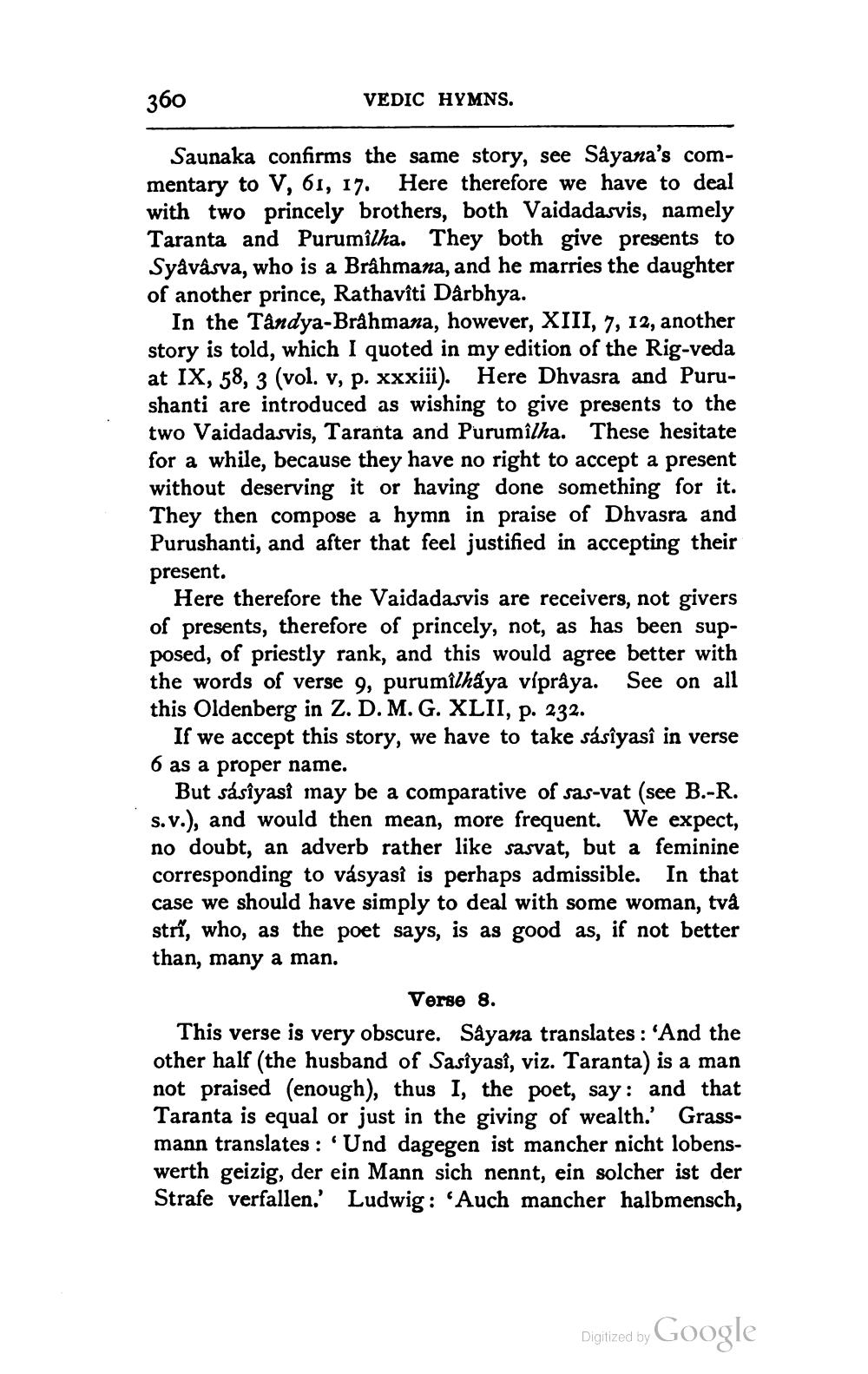________________
360
VEDIC HYMNS.
Saunaka confirms the same story, see Sayana's commentary to V, 61, 17. Here therefore we have to deal with two princely brothers, both Vaidadasvis, namely Taranta and Purumilha. They both give presents to Syâvâsva, who is a Brâhmana, and he marries the daughter of another prince, Rathavîti Darbhya.
In the Tåndya-Brahmana, however, XIII, 7, 12, another story is told, which I quoted in my edition of the Rig-veda at IX, 58, 3 (vol. v, p. xxxiii). Here Dhvasra and Purushanti are introduced as wishing to give presents to the two Vaidadasvis, Taranta and Purumilha. These hesitate for a while, because they have no right to accept a present without deserving it or having done something for it. They then compose a hymn in praise of Dhvasra and Purushanti, and after that feel justified in accepting their present.
Here therefore the Vaidadasvis are receivers, not givers of presents, therefore of princely, not, as has been supposed, of priestly rank, and this would agree better with the words of verse 9, purumilhaya vipraya. See on all this Oldenberg in Z. D. M. G. XLII, p. 232.
If we accept this story, we have to take sásiyasî in verse 6 as a proper name.
But sásiyasi may be a comparative of sas-vat (see B.-R. s.v.), and would then mean, more frequent. We expect, no doubt, an adverb rather like sasvat, but a feminine corresponding to vásyast is perhaps admissible. In that case we should have simply to deal with some woman, två strî, who, as the poet says, is as good as, if not better than, many a man.
Verse 8. This verse is very obscure. Såyana translates : 'And the other half (the husband of Sasiyasî, viz. Taranta) is a man not praised (enough), thus I, the poet, say: and that Taranta is equal or just in the giving of wealth.' Grassmann translates : 'Und dagegen ist mancher nicht lobenswerth geizig, der ein Mann sich nennt, ein solcher ist der Strafe verfallen.' Ludwig: 'Auch mancher halbmensch,
Digitized by
Digilzed by Google




